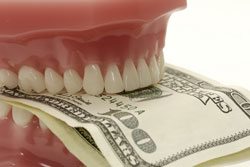 In 2010, a Pew Research report indicated that three out of every four members of the workforce expect to keep working for pay after they retire. 60% of them believe this will be by choice, not necessity – but pre-retirees may be more optimistic than justified in their expectations. According to the Center of Retirement Research, less than half of all households are financially prepared for retirement at 65; a quarter will need to work at least one to three more years; and almost one in ten will need to work past age 72 or longer.
In 2010, a Pew Research report indicated that three out of every four members of the workforce expect to keep working for pay after they retire. 60% of them believe this will be by choice, not necessity – but pre-retirees may be more optimistic than justified in their expectations. According to the Center of Retirement Research, less than half of all households are financially prepared for retirement at 65; a quarter will need to work at least one to three more years; and almost one in ten will need to work past age 72 or longer.
Whether by need or choice, it’s clear that plenty of folks are likely to continue working in one capacity or another after they officially retire. The decision of whether or not to do so is dependent upon a range of factors.
Factors Affecting Retirement Security
Financial security for American citizens usually results from a combination of government programs, personal assets, and employer benefits. However, each of these factors is undergoing historical transformations right now. Unfortunately, these transformations may mean Americans have to move the goalposts back a bit when it comes to their retirement goals.
1. Investment Volatility
Conventional wisdom suggests that the average annualized return for common stocks over a period of 10 years or more is positive, somewhere between 7% and 9%. However, statistics have a way of disguising inconvenient truths: According to AllFinancialMatters.com, there is actually substantial volatility in the numbers – mainly related to start and end dates.
Suppose three brothers work for the same company and each invests $50,000 in its 401k plan over a period of 30 years. Joe, the oldest brother, begins investing in 1966 and – assuming the results mimic the S&P 500 return – retires in 1996 with $1,871,111 in his account. Bill, the middle brother, who began investing in 1976, retires in 2006 with $1,520,397 in his account. And Mike, the youngest brother, begins in 1983 and retires in 2013 with $1,050,416. These figures do not include the effects of inflation or the deduction of fees.
Older workers – those most likely to retire in the coming decade – found the impact of the last stock market decline to be especially harmful. Two-thirds of those between the ages of 45 and 60 reported at least a 20% decline, according to one survey. As Gad Levanon, director of macroeconomic research at the Conference Board, observed, “The older you are, it makes it more difficult to make up for [loss of value] and more people are delaying retirement as a result.”
2. Low Interest Rates
Many retirement professionals previously advised that an annual 4% withdrawal rate would result in sufficient funds to last through 30 years of post-work life. In other words, a fund of $1 million could provide $40,000 per year.
However, due to lower yields on fixed income investments, many retirement planners now recommend a withdrawal rate between 2.7% and 3.0% in order to achieve a 90% probability of not outliving your assets. Lowering the distribution rate means that income must now be replaced from other sources, and your standard of living must be lowered.
Read more . . .




